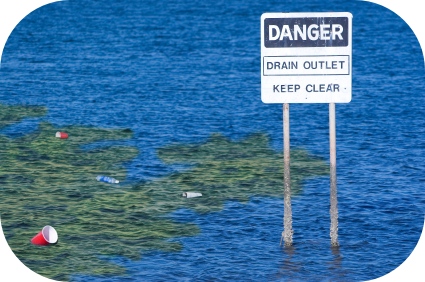The “river of health” analogy can help us understand why our bodies lose resistance to some health challenges and how we can improve our overall health. Dr. Tina Marcantel is a naturopathic doctor in Gilbert, Arizona, who also serves the East Valley cities of Mesa, Scottsdale, Tempe, Chandler, Apache Junction, and Queen Creek, and the greater Phoenix area.
Imagine a river.
Start at the headwaters: a clean, clear,
fast-moving mountain stream.
The banks are verdant and lush
and sparkling sunlight diamonds
shimmer on the surface as dark flashes reveal
trout in the deeper and quieter pools.
On a hot day the waters invite you
to plunge into the icy freshness
and scoop up handfuls of water
to quench your thirst.
As you travel downstream,
the river begins to widen
and the volume of water increases
as tributaries add to the flow.
The farther you move down river,
the more signs of “civilization” appear
as the clear, fresh waters
begin to get murkier.
Industrial waste and agricultural runoff
and trash cast off from careless passers-by
are becoming evident.
When we finally reach a spot in the river
after passing through several cities,
we can barely recognize our clear mountain stream.
The banks are littered with broken bottles and dead fish,
the dark, oily waters look ominous,
and we can only smile grimly at the superfluous sign that reads,
“No Swimming By Order of the Health Department.”
Now think of this place as your “River of Health.”
Most of us are fortunate to be born with fairly healthy bodies. We enjoy our youth in the cool waters of the mountain stream, rarely even considering what a precious gift good health is.
As life goes on it’s easy to go with the flow as we are often unconsciously pulled downstream. We may be unaware of some pollutants that enter our health stream, like the environmental toxins in the air we breathe, the cleaning products we use, or the additives and preservatives in the food we eat daily. Lifestyle choices we make also have a huge impact, such as smoking, alcohol abuse, lack of exercise, and most common of all, poor dietary choices.
Add to these the routine use of prescription drugs, stress of work, family problems, and the busy-ness of life, and you may well realize that you are bobbing around in the oily waters of the “No Swimming” zone.
So how do you get back to the headwaters of health? That’s what naturopathic care is all about. The goal of healthcare must go beyond simply treating the symptoms of whatever current health challenge you are facing and help you progress toward a vibrant, health-oriented lifestyle. How that is done is based on some simple, often overlooked principles. Read part 2 to find out what those principles are.
1 2










